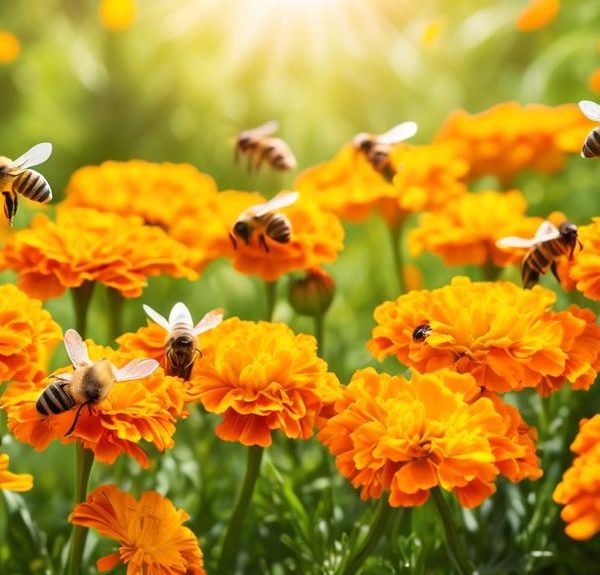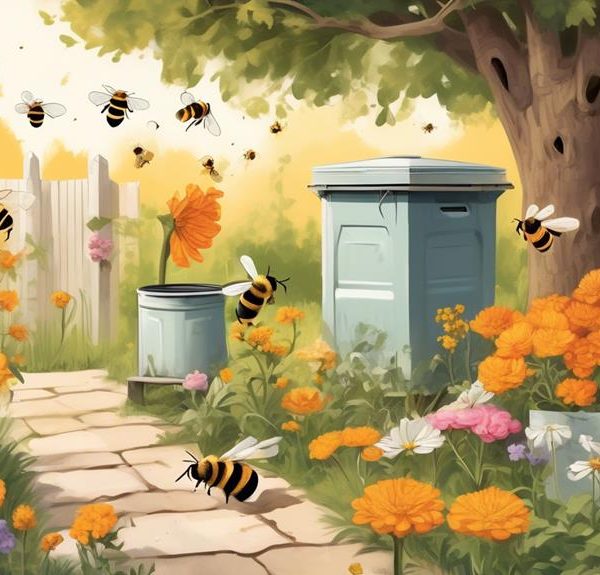Learn about the surprising costs of beekeeping and the various factors that determine the price of a hive.
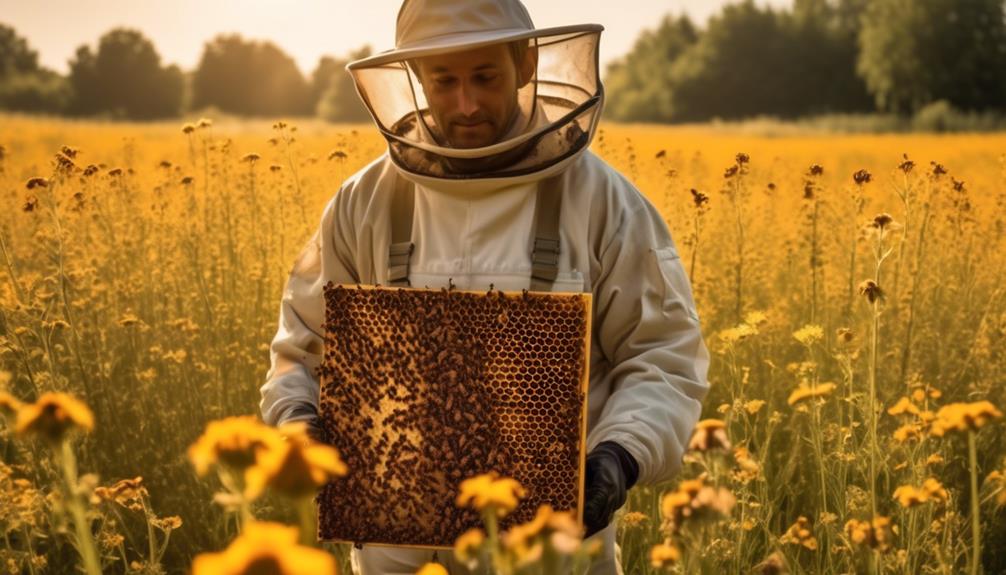
How Much Does a Hive of Bees Cost?
While the hum of bees might be a nuisance at your picnic, it's music to the ears of a beekeeper. You're probably curious about the cost of owning a hive of these industrious creatures.
It's not as simple as slapping down cash and walking away with a box of buzzing bees. The cost of a hive varies widely, influenced by factors like the type of hive, the number of bees, and even the species of the bee.
Hold onto your curiosity, as we're about to embark on a journey to comprehend the true cost of beekeeping, which might be more complex than you'd expect.
Key Takeaways
- Beehive equipment costs can vary, but a basic beehive kit can range from $150 to $200, while a complete setup with essential tools can range from $300 to $500.
- The cost of bees, whether in packages or nucleus colonies, is an additional expense. Bee packages can cost $100 to $150, while nucleus colonies range from $150 to $200. Established hives can cost over $300.
- Ongoing maintenance expenses are an important factor to consider in beekeeping. This includes feeding bees with sugar syrup, hive parts replacement or repair, pest management, and extraction equipment costs for honey production.
- There are ways to save money on beekeeping, such as building your own beehives, joining a local beekeeping association for shared resources, buying bees in bulk, utilizing natural methods for pest control, and maintaining hives properly to prevent costly issues.
Understanding Beekeeping Basics
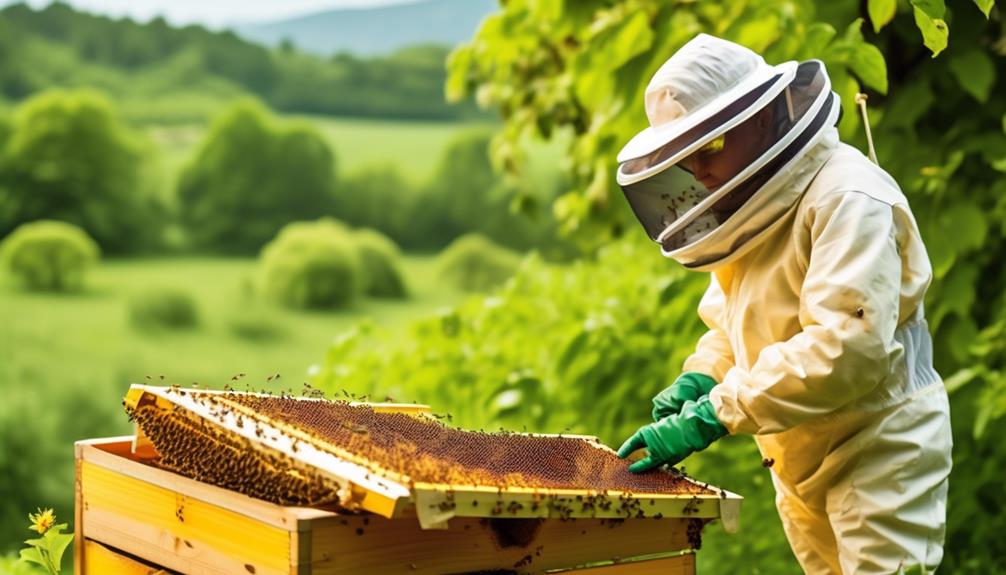
Diving into the world of beekeeping, you'll quickly discover that it's a fascinating blend of science, art, and patience, requiring a solid grasp of bee behaviors, hive management, and honey production. It's not just about housing bees and collecting honey. It's about understanding the intricate dynamics of the hive, the roles of the queen, workers, and drones, and how they interact to sustain the colony.
To successfully keep a hive of bees, you'll need to learn about different hive types, like the traditional Langstroth or the naturalistic Top-Bar. You've got to grasp the importance of hive placement, considering factors like sunlight, wind direction and accessibility. You'll need to understand how to inspect your hive and recognize signs of disease or pest infestation.
Furthermore, you'll come to comprehend the process of honey production, the importance of nectar flow, and the critical role your bees play in pollination. Beekeeping isn't just a hobby; it's a commitment to stewarding these vital insects. It's a journey that demands your time, patience, and passion. But the rewards – honey, beeswax, and the satisfaction of supporting an ecosystem – can be incredibly fulfilling.
Breakdown of Beehive Equipment Costs
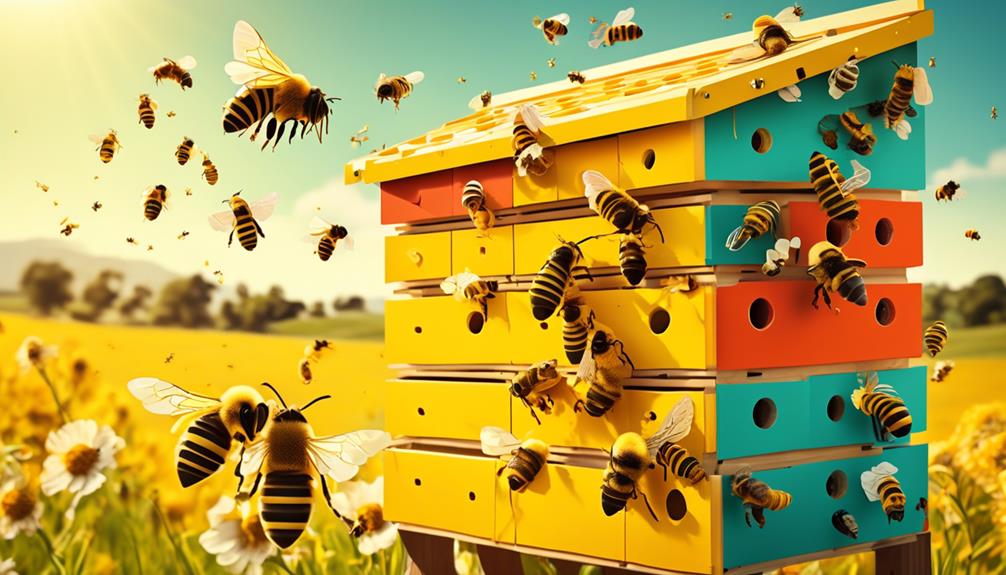
Now that you've got a feel for the basics of beekeeping, let's delve into the nitty-gritty: the cost of beehive equipment. There's no denying that beekeeping can be an investment. Nevertheless, the rewards, both personal and environmental, are immense.
The cost of beehive equipment can vary significantly based on quality, brand, and whether you opt for new or used gear. A basic beehive kit, which includes the hive body and frames, can set you back between $150 to $200. If you're looking for a complete setup, including essential tools like a bee suit, smoker, and hive tool, you're looking at around $300 to $500.
But let's not forget about the bees themselves. A package of bees, which is enough to get a new hive started, typically costs between $100 to $150. Alternatively, you could opt for a nucleus colony, a smaller, already functioning colony, which can cost between $150 to $200.
Evaluating the Price of Bees
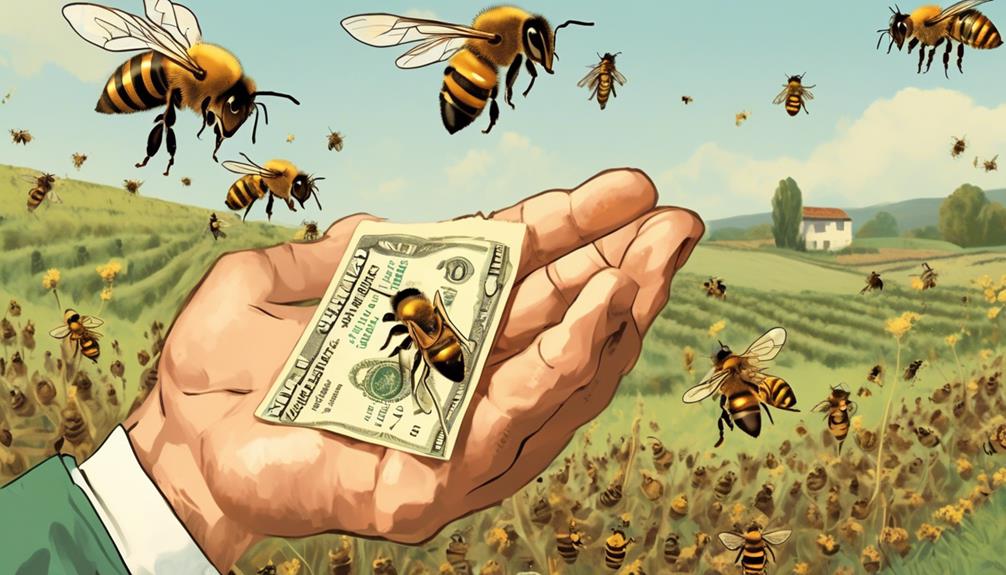
Understanding the cost of bees is crucial to your beekeeping journey, as this initial investment can greatly impact your overall budget and operations. The price of bees varies greatly depending on the type, quantity, and source.
Typically, you'll find honey bees available for purchase in three forms: packaged bees, nucs (or nucleus colonies), and established hives. Packaged bees are the most affordable option, usually ranging from $100 to $150. They're ideal if you're starting from scratch and eager to build your own hive. They come in a box, with a queen and a few pounds of worker bees.
A nuc, on the other hand, is essentially a small, functioning hive. More expensive than packaged bees, nucs usually cost between $150 to $200.
Established hives, fully functioning and populated, are the priciest option, often costing upwards of $300.
Considering Ongoing Maintenance Expenses
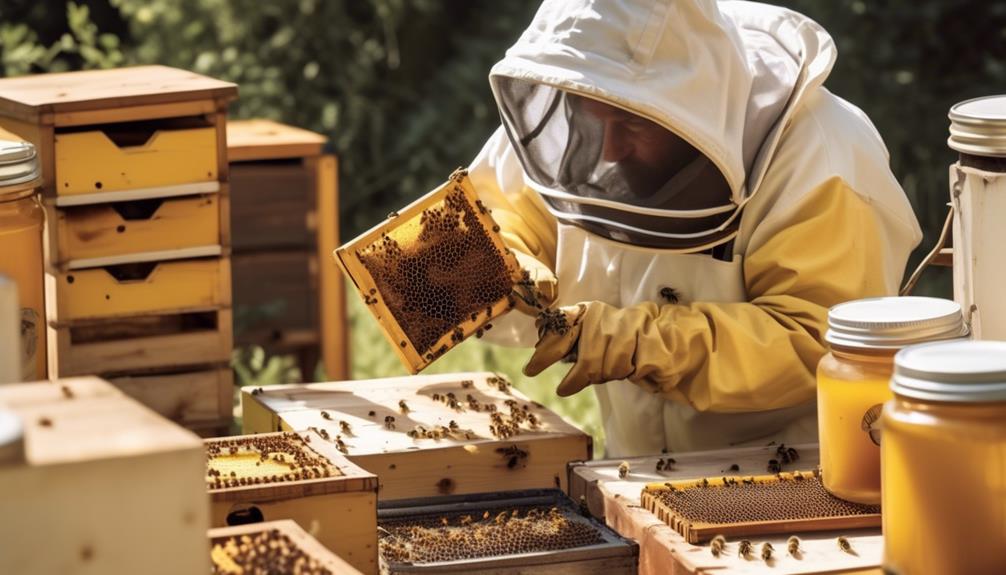
While the initial cost of bees is an important factor in your budget, it's equally essential to factor in the ongoing maintenance expenses that come with beekeeping. This isn't just a one-time investment, it's a continuous commitment. From feeding to mite control, every aspect demands attention and resources.
For starters, your bees need to eat, especially during winter or in times of scarce flowers. Sugar syrup is a standard supplement, and you can expect to spend roughly $20 per hive per year on this alone. Then there's equipment upkeep. You'll need to replace or repair hive parts, which can cost anywhere from $10 to $50 annually per hive, depending on wear and tear.
Don't forget about pest management. Varroa mites are a common threat to beehives, requiring treatments that can add up to $20 per hive each year. And if you're aiming for honey production, you'll need to factor in extraction equipment costs too.
In short, beekeeping is more than just buying bees. It's an ongoing investment, one that requires passion, time, and yes, a bit of money. But remember, the rewards – both tangible and intangible – are truly priceless.
Ways to Save Money on Beekeeping
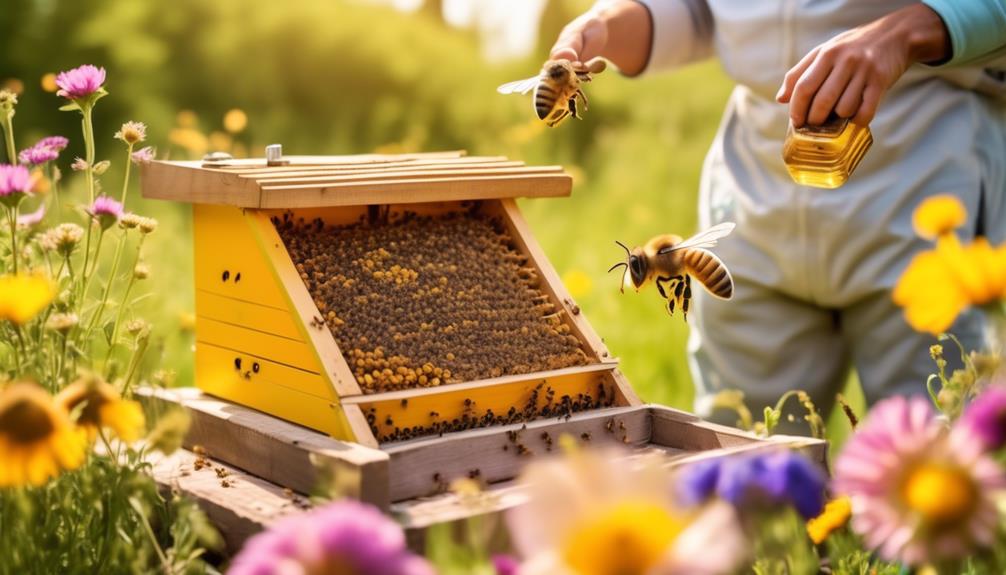
Despite the costs associated with beekeeping, there are several effective strategies you can employ to keep your expenses down and make the most of your investment.
Firstly, consider building your own beehives instead of buying them. It's a great way to save money and you'll learn invaluable skills along the way.
Secondly, join a local beekeeping association. Not only will you gain access to a wealth of knowledge from experienced beekeepers, but you'll likely find opportunities to share resources and equipment, reducing your individual costs.
Next, you can save by buying bees in bulk. If you're planning on setting up multiple hives, purchasing a package of bees, rather than individual colonies, can be a more cost-effective option.
Frequently Asked Questions
What Are the Legal Requirements for Starting a Beekeeping Venture?
To start your beekeeping venture, you'll need to adhere to specific legal requirements. These can vary by region but typically involve obtaining a permit, registering your beehives, and following local zoning laws.
You're often required to maintain certain distances from public spaces and neighbors. Inspections by local agricultural authorities may also be part of the process.
It's crucial to check with your local government for precise rules and regulations.
Can Beekeeping Be Done in an Urban Setting?
Absolutely, you can keep bees in an urban setting! City bees often thrive due to the diversity of plants and flowers. However, you'll need to check local bylaws and regulations.
Be mindful of your neighbors: place hives thoughtfully and maintain them properly. Beekeeping isn't just limited to rural areas. It's an engaging hobby that benefits the environment, regardless of where you live.
Your urban honey will be a unique blend of your city's flora.
How Can I Protect Myself and Others From Bee Stings During Beekeeping?
You'll want to invest in a quality bee suit to protect yourself from stings. This suit should cover your entire body, including hands, feet and head.
Be mindful of your actions around the hive; abrupt movements can agitate bees. It's also crucial to educate those around you about bee behavior. Remember, bees aren't typically aggressive unless provoked.
With these precautions, you'll minimize the risk of stings during your beekeeping adventure.
Are There Any Specific Training or Certifications Required for Beekeeping?
While formal training or certification isn't strictly necessary for beekeeping, it's highly recommended. You'll gain essential skills and knowledge to keep your bees healthy and productive.
Many local agriculture extensions offer beekeeping classes. Plus, joining a local beekeeper's association can provide mentorship and hands-on experience.
Don't forget to check state and local regulations as some areas require permits. It's not just about getting bees, it's about creating a thriving, sustainable hive.
What Are the Potential Health Benefits of Beekeeping?
Beekeeping offers you an array of health benefits. It's a perfect stress reliever, providing a unique, outdoor activity to connect with nature. You'll boost your immune system through local honey consumption, known for its allergy-fighting properties. Plus, beeswax and propolis have various therapeutic uses.
However, remember to take proper precautions, as bees can sting! It's not just about honey; beekeeping's a holistic approach to improve your physical and mental wellbeing.
Conclusion
So, you're embarking on a beekeeping journey! Remember, the initial costs can vary, from the hive setup to purchasing the bees themselves. Don't overlook ongoing maintenance expenses, they're part of the package. But fear not, savvy ways to save are there for the taking.
The buzz of beekeeping is worth every penny – it's not just about honey, it's about supporting our crucial pollinators. Embrace the adventure, your buzzing buddies await!

